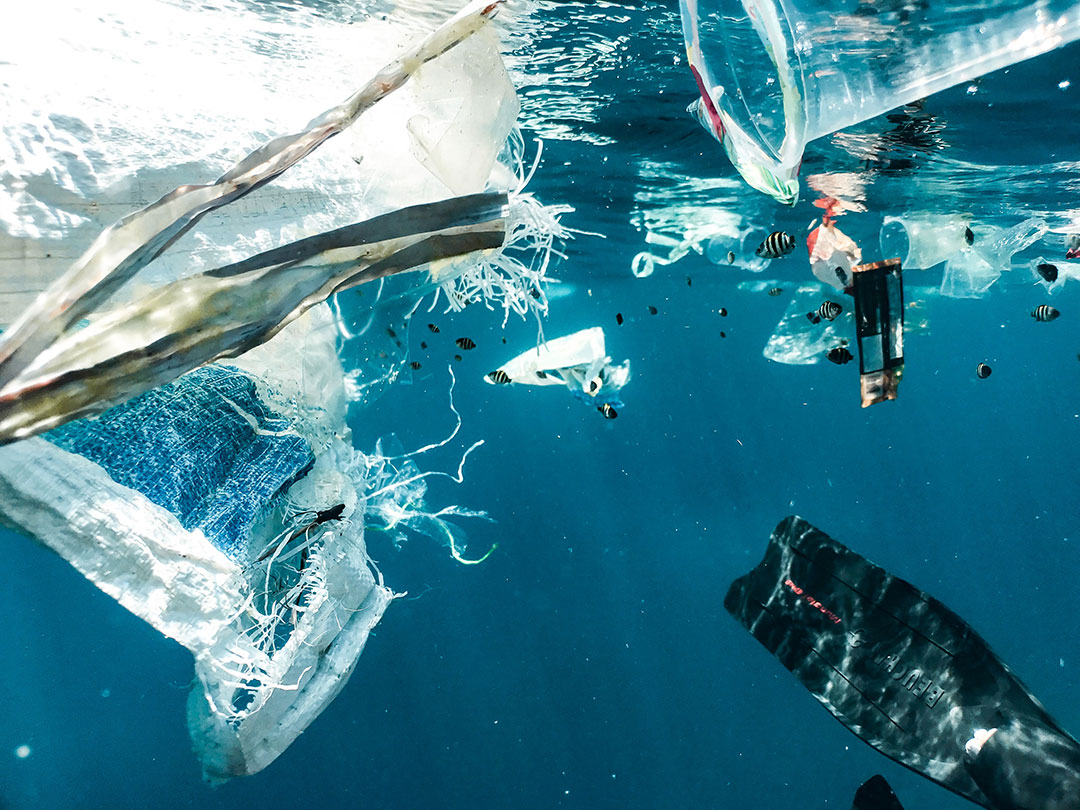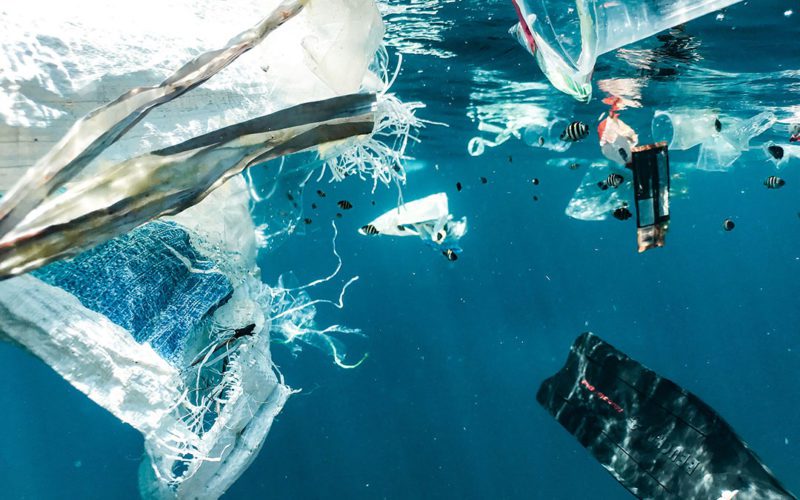
wo European companies have developed a new process that uses oceangoing ships to remove microplastics from the ocean.
Wartsila and the Grimaldi Group developed the system, which filters microplastics out of shipboard exhaust water. The filter pairs with existing seawater scrubbers on ships, and it can be placed on either the supply or return side of the seawater stream, according to Sigurd Jenssen, director of Wartsila exhaust treatment.
“Microplastic is an obvious concern and something we’ve been thinking about for a lot of years,” Jenssen said. “We have seen the potential to filter out microplastics, among other issues.”
“I don’t think anyone has ever looked at filtering microplastics from the various seawater streams you have on board,” he added.
Grimaldi Lines recently completed a pilot test of the new scrubber system installed on company vessels cruising between Civitavecchia, Italy, and Barcelona, Spain, Grimaldi Group Managing Director Emanuele Grimaldi said. The filter system collected more than 64,000 microplastic particles on the single 550-mile voyage.
The filters effectively turn cargo ships into “vacuum cleaners of the sea,” Grimaldi said. “We look forward to further collaboration to tackle microplastics in our oceans.”
Wartsila will make the filtration system an integrated feature of the company’s future wash-water treatment systems.
The Grimaldi Group, wholly owned by the Grimaldi family, operates a fleet of more than 130 car carriers and ferries, and is headquartered in Naples, Italy. Wartsila is a Finnish company that manufactures and services power sources and other equipment in the marine and energy markets.
“To our knowledge, there are no other plastic-scrubbing technologies currently available on the market,” Jenssen said. “There are other solutions that remove plastics from the world’s waters but they are not facilitated through exhaust gas cleaning systems.”
The filtration process will require little change to current systems, according to Wartsila. A 10-megawatt engine will let scrubbers process about 450 cubic meters of water per hour. Judging by early tests, the company says, the filtration system can capture particles smaller than 10 micrometers at the rate of about 76 particles per cubic meter.
“The ability to capture microplastics shows how scrubbers are a platform for solving a wide range of sustainability challenges,” said Tamara de Gruyter, president of marine systems at Wartsila, “and now even ones that are beyond the stack.”
The plastic filters take their place beside the water scrubbers that remove particulate matter and other components like sulfur and nitrogen oxides from the exhaust gases generated by the combustion in marine engines.
International Maritime Organization (IMO) regulations mandate that the sulfur content in fuels carried by merchant vessels has to be limited to 0.5 percent globally and 0.1 percent in emission control areas (ECAs), which include waters close to U.S. and some Canadian shores.
The price of exhaust gas scrubbers can be several million dollars per ship, and economics have impacted the pace of installation. Adding plastic filters is a smaller-impact change.
When Belgian-American chemist Leo Baekeland cooked formaldehyde and phenol under pressure in 1907, he likely spared little thought for the effects his new substance might have on the environment. Today the negatives of Bakelite — the precursor to modern plastic — can hardly be ignored.
By the 1950s, producers manufactured more than 2 million metric tons of it per year, according to a study published in Science Advances. By 2015, that number had risen to 8.3 billion metric tons a year, of which 6.3 billion metric tons becomes waste. Most is thrown away rather than recycled, according to the study. And plastic doesn’t biodegrade.
The ocean holds much of this waste. Of the 368 million tons of plastic produced in 2019 worldwide — some 3 percent or 11.4 million tons — found its way into the ocean. Some scientists estimate that by 2050 the amount of plastic in the oceans will weigh more than all the fish.
“We’re not going to singularly clean the oceans of all microplastics as the system won’t remove container loads of plastics per trip,” Jenssen said. “But it’s a contribution and a step in the right direction. The added costs are minimal, so we think it’s worth doing.”

